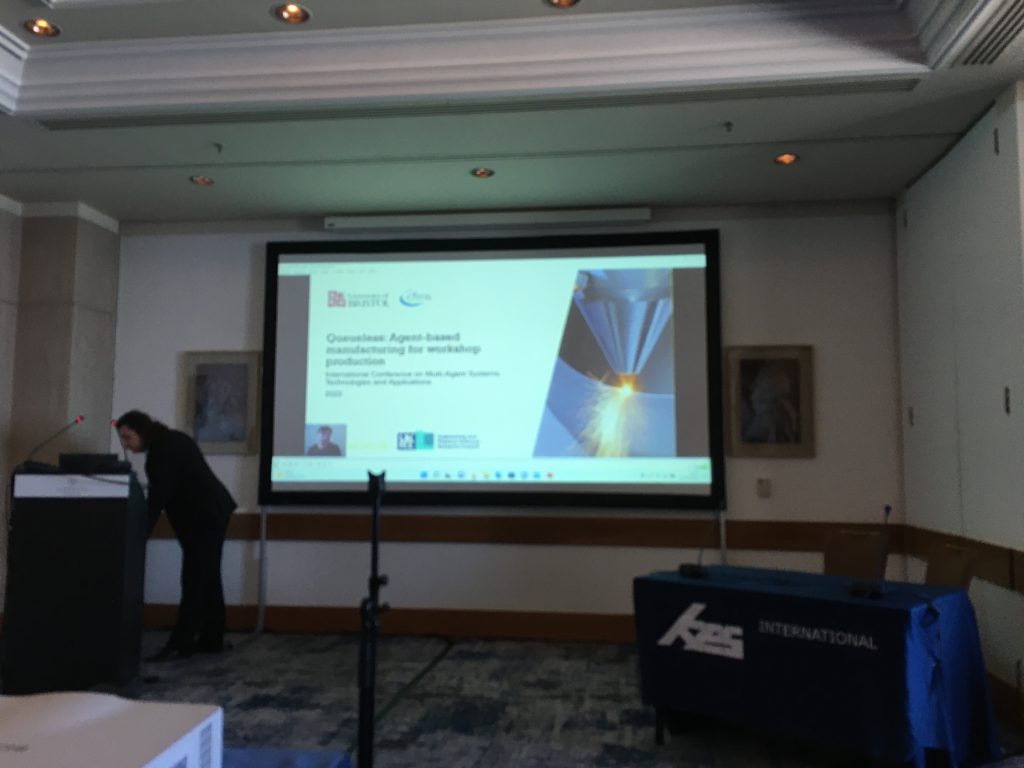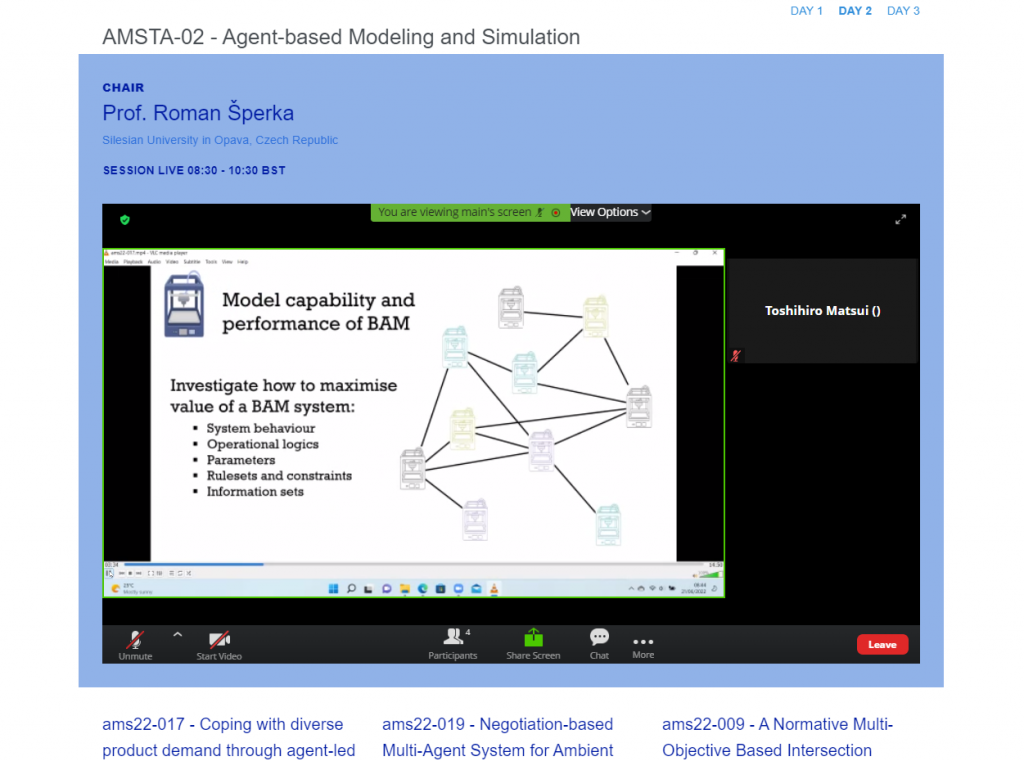The Brokering Addtive Manufacturing research group have been presenting their novel research in the application of agent-based methods to brokering additive manufacturing networks at the 16th International KES Conference on Agent & Multi-Agent Systems.
The conference was hybrid, with James presenting from the room and Chris (slightly sleep-deprived with his newborn son) streaming from the UK!


We presented two papers:
Queueless: Agent-Based Manufacturing for Workshop Production
Workshops are vital to product development, supporting prototyping, research & development, bespoke and small-batch production, and education. They are composed of diverse manufacturing capability that needs to meet varied, rapid, diverse, and often random changes in demand. The diversity in both composition and demand continues to challenge the optimal processing of jobs leading to considerable delays and dissatisfaction with workshop services.
In this paper, we examine how a workshop can optimally utilise its manufacturing capability through an agent-based approach. We show that a relatively simple set of agent logics can provide considerable configurability and ability to optimise a workshop of twenty machines meeting a step-change in demand. Appropriate configuration can result in a 40% change in mean Time in System and 20% change in the number of jobs delayed.
Coping with diverse product demand through agent-led type transitions
Additive Manufacturing (AM) machines are a highly flexible manufacturing capability capable of producing a wide range of products. One feature that enables this is the ability to change materials in a relatively short time. For example, Fused Deposition Modelling (FDM) printers can be quickly and easily re-configured to print in different materials such as PLA, ABS, and Nylon.
Facilities that therefore employ Additive Manufacturing (AM) machines have the underlying capability to be flexible and responsive to diverse product demand. However, as jobs require different machine configurations for fabrication, methods need to be developed to assist facilities in deciding whether to and when to transition machines from one type of production to another to maximise overall system performance. In this paper, we explore how agent-based control can provide flexibility and responsiveness in manufacturing facilities. A model of a single fabrication workshop was created using AnyLogic, comprising multiple machines and incoming jobs of varying required machine configuration. The modelling shows responsiveness to spikes in demand when machines are able to request a change in configuration, although the penalties associated with reconfiguration cause poor performance when changes occur frequently. When not willing to change configuration, spikes in demand cause the system to become unstable and unable to meet changes in demand.

